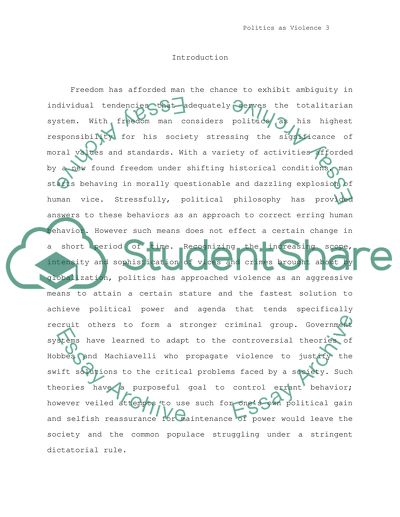Cite this document
(Politics as Violence in Hobbes and Machiavelli Coursework, n.d.)
Politics as Violence in Hobbes and Machiavelli Coursework. Retrieved from https://studentshare.org/politics/1537038-compare-the-ways-philosophers-machiavelli-and-hobbes-describe-or-justify-politics-as-violence
Politics as Violence in Hobbes and Machiavelli Coursework. Retrieved from https://studentshare.org/politics/1537038-compare-the-ways-philosophers-machiavelli-and-hobbes-describe-or-justify-politics-as-violence
(Politics As Violence in Hobbes and Machiavelli Coursework)
Politics As Violence in Hobbes and Machiavelli Coursework. https://studentshare.org/politics/1537038-compare-the-ways-philosophers-machiavelli-and-hobbes-describe-or-justify-politics-as-violence.
Politics As Violence in Hobbes and Machiavelli Coursework. https://studentshare.org/politics/1537038-compare-the-ways-philosophers-machiavelli-and-hobbes-describe-or-justify-politics-as-violence.
“Politics As Violence in Hobbes and Machiavelli Coursework”. https://studentshare.org/politics/1537038-compare-the-ways-philosophers-machiavelli-and-hobbes-describe-or-justify-politics-as-violence.


